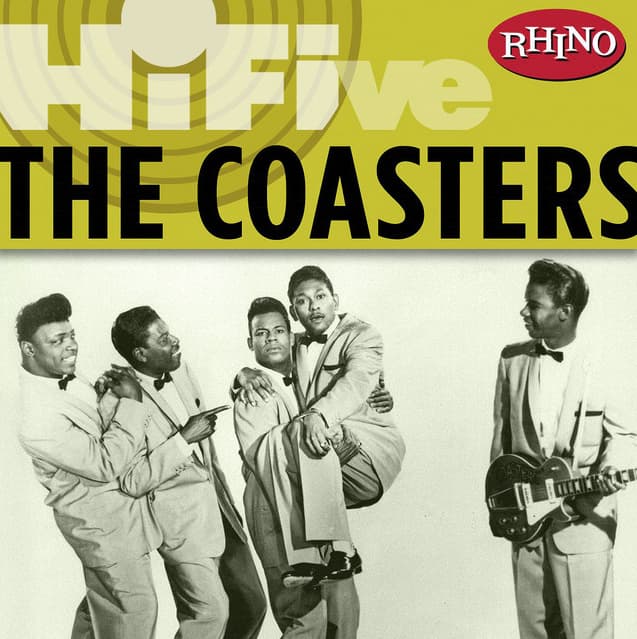
The Coasters – “Charlie Brown”: A Playful Ode to the Class Clown
The Coasters’ “Charlie Brown” is a fun, humorous track that captures the spirit of youthful mischief and rebellion. Released in 1959, the song became an instant hit, reaching No. 2 on the Billboard Hot 100. Written by the renowned duo Jerry Leiber and Mike Stoller, “Charlie Brown” tells the story of a mischievous troublemaker whose antics drive his teachers and classmates crazy. With its catchy beat, lively saxophone, and clever lyrics, “Charlie Brown” has become one of The Coasters’ most enduring songs, celebrated for its lighthearted take on school life and the trials of growing up.
The song opens with a lively beat and a playful saxophone riff that immediately sets a fun, upbeat tone. The instrumentals are bright and bouncy, matching the mischievous energy of the character. The Coasters’ vocal harmonies are smooth and engaging, adding a theatrical quality to the track that draws listeners in. Each member’s voice brings a unique element to the song, creating a dynamic interplay that feels like a scene unfolding, with “Charlie Brown” as the star of the show.
Lyrically, “Charlie Brown” follows the antics of a character who seems to be the school’s biggest troublemaker. Lines like “Who walks in the classroom, cool and slow? / Who calls the English teacher Daddy-O?” paint a picture of a kid who marches to the beat of his own drum, not afraid to push boundaries and break the rules. The character of Charlie Brown represents the quintessential class clown—someone who’s always in trouble but somehow manages to charm everyone with his carefree attitude. His defiant “why’s everybody always pickin’ on me?” refrain has become iconic, perfectly capturing the humor and irony of a kid who causes trouble but insists he’s innocent.
The chorus, “Charlie Brown, Charlie Brown / He’s a clown, that Charlie Brown” is catchy and memorable, making it easy for listeners to sing along. The repetition reinforces Charlie’s reputation as the lovable rogue, someone who seems to enjoy his role as the class clown. It’s a lighthearted look at the troublemaker archetype, celebrating the free-spiritedness of youth and the playful side of rebellion. The song’s playful tone and humorous lyrics make it relatable for listeners of all ages, tapping into the universal experience of knowing—or being—the kid who’s always stirring things up.
One of the song’s standout moments is the line “Why’s everybody always pickin’ on me?” delivered with a mix of mock innocence and frustration. This line, repeated throughout the song, adds a layer of humor and irony, as Charlie Brown protests his treatment despite his clear role in creating chaos. The Coasters’ delivery of this line is spot-on, capturing the exaggerated, theatrical nature of the character. It’s both funny and endearing, turning Charlie Brown into a character that listeners can root for, even if he’s up to no good.
Musically, “Charlie Brown” is driven by its upbeat tempo and lively saxophone, which captures the energy of the character and adds to the song’s playful feel. The saxophone solo, performed by King Curtis, is bold and expressive, adding a layer of personality to the track that complements the lyrics. The song’s rhythm and melody are infectious, with a classic rock and roll beat that keeps the energy high from start to finish. The Coasters’ harmonies and vocal dynamics add depth to the track, making it feel as much like a performance as a song.
“Charlie Brown” became one of The Coasters’ most popular songs, appealing to audiences with its humor and catchy sound. It showcases Leiber and Stoller’s gift for storytelling through music, as they capture a slice of teenage life with a blend of wit and charm. The song’s timeless appeal has kept it relevant over the years, and it’s often included in collections of 1950s rock and roll classics. Its humorous look at school life and the character of the “bad kid” has made it a staple for fans of early rock and roll.
In the end, “Charlie Brown” is a song that captures the fun and mischief of youth, celebrating the spirit of rebellion and the joy of being a little bit naughty. The Coasters’ playful performance, combined with Leiber and Stoller’s clever lyrics, make it a classic that continues to entertain and amuse listeners of all ages. For anyone who remembers the school troublemaker—or has been one themselves—“Charlie Brown” is a reminder that sometimes, a little harmless mischief is all part of growing up.